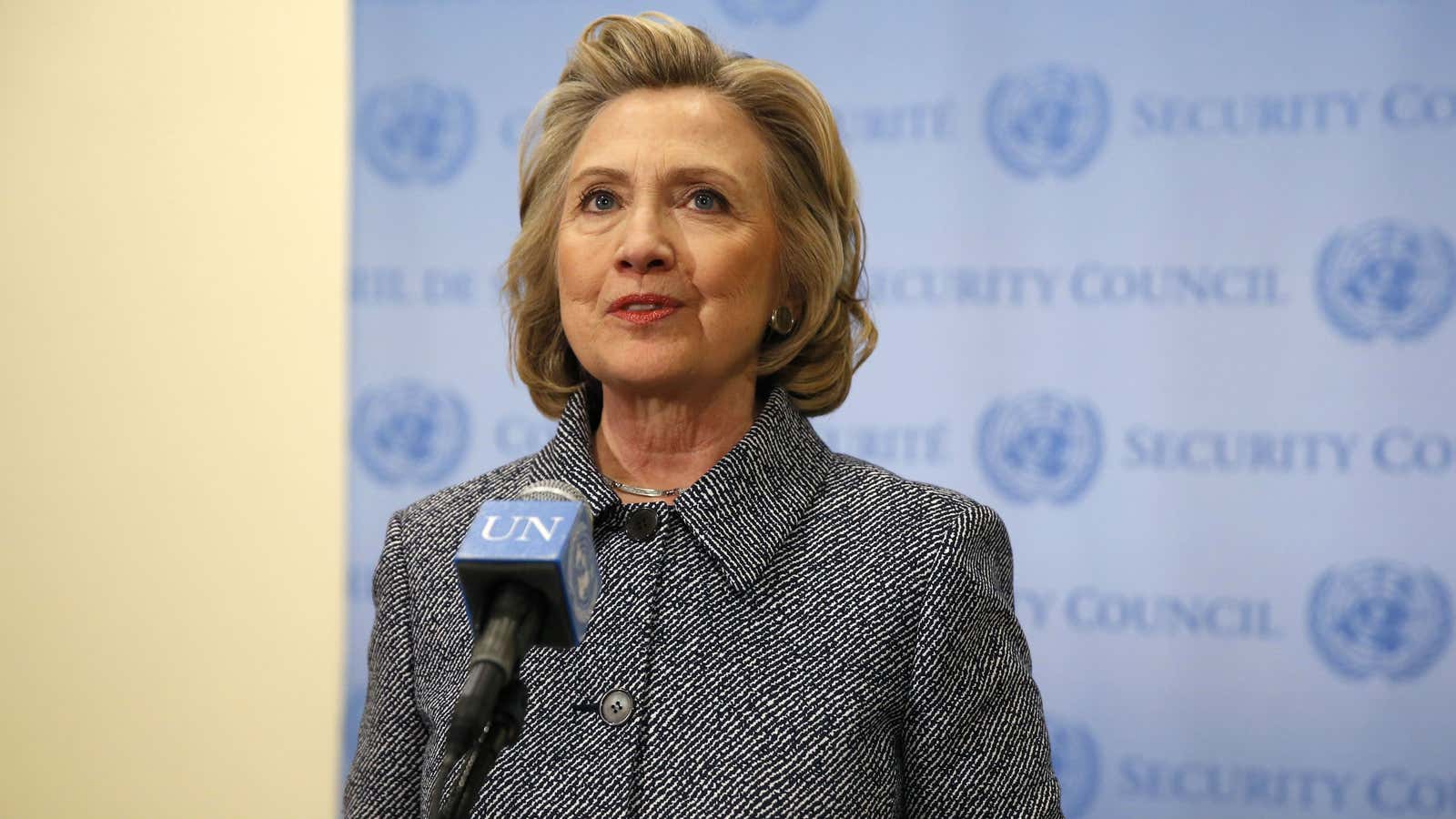In 1995, Hillary Clinton joined world leaders in Beijing for a United Nations conference on women. She delivered a powerful speech, calling for action toward achieving gender equality.
As long as discrimination and inequities remain so commonplace around the world—as long as girls and women are valued less, fed less, fed last, overworked, underpaid, not schooled and subjected to violence in and out of their homes—the potential of the human family to create a peaceful, prosperous world will not be realized.
She was first lady of the United States then. Today, 20 years later, she was back addressing the same assembly on the same issues. In between, she’s been a senator, a presidential candidate, and secretary of state. Now she’s a presumptive candidate in the 2016 race for the White House. In the introduction she was given to the attendees who had gathered at the UN building in New York today, she was referred to, amongst excited cheers, as “future president.”
Her speech wasn’t much different from the one she delivered in Beijing. Comprehensive and balanced, it pointed to the untapped potential women hold for the US economy—an economy that she said would be 10% larger if the gap between men’s and women’s participation in the workforce were closed. While noting that “there has never been a better time in history to be born female,” Clinton described women’s equality as “the great unfinished business of the 21st century.”
The women’s rights focus of the event ended there for Clinton: at the widely covered press conference following her speech, her brief opening statement about women quickly gave way to a discussion about the scandal regarding her email practices as secretary of state.
One question she fielded from the press attempted to tie the two subjects together: Clinton was asked whether she thought a man in her position would be held up to the same scrutiny. She declined to reply, saying she’d leave the judgment of the situation to others—which is a shame, because indeed a man would have been grilled just as she has, and she should have been proud to say that. Clinton was under fire not for her gender, but for her power and success, and for her conduct while holding the most important foreign affairs office in the world. She should have acknowledged that her treatment was not due to gender imbalance—if anything, it was a sign that she was taken as seriously (and as suspiciously) as a man.
Of course, it would be preferable to see proof of a level playing field in other, more positive regards. And it’s a shame the broader message of the UN conference got overshadowed by one woman’s political scandal. Yet what happened at the UN today proves that, while there is still a lot of ground to cover and gender equality is indeed unfinished business, 20 years after the world first agreed that “women’s rights are human rights” there has been progress—enough at least that a woman like Clinton would be on a world stage not because she had married a president but because she might be one. If holding such power means getting treated as roughly as the male politicians who have courted scandal, so be it.
